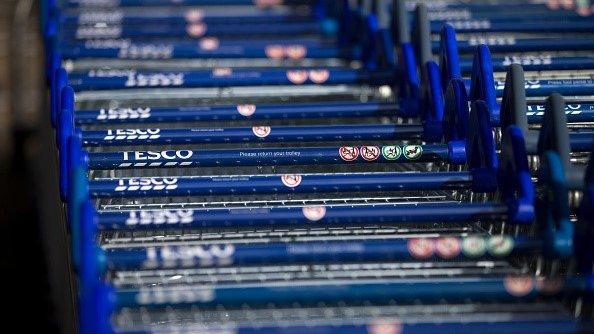Tesco warns global suppliers over price rises
- Published
- comments
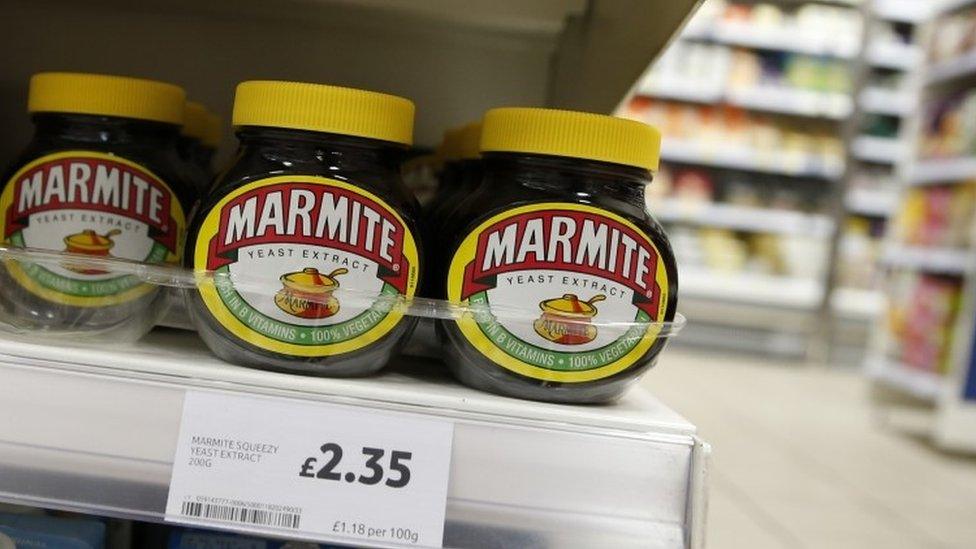
Tesco chief executive Dave Lewis has warned global suppliers not to artificially inflate their prices because of the fall in the pound.
It is his first public comments since supplier Unilever tried to raise the cost of popular items such as Marmite due to a weaker currency.
The UK's biggest retailer briefly halted online sales of Unilever's goods.
Mr Lewis said price rises needed to be "justified".
He agreed there were inflationary pressures, but he said multi-national companies should not increase prices just to reassure investors.
Currency volatility
Mr Lewis pointed out that such businesses presented results in both constant and current exchange rates to take account of currency volatility.
"The only thing we would ask of companies that are in that position is they don't ask UK customers to pay inflated prices in order that their reporting currency is maintained," he said.
"They don't do that for countries outside of the UK."
Unilever had argued price rises were necessary to cover higher import costs even though Marmite was being manufactured in the UK.
Mr Lewis, who worked for Unilever for 28 years, quickly reached an agreement with his old employer, but the terms of the deal have not been disclosed.
The pound has fallen by about 16% against the dollar since the UK voted in June to leave the EU. It has also fallen to a lesser extent against the euro.
A weaker pound pushes up the price of imported goods, although it also makes UK exports cheaper for foreign buyers.
Mind the gap
Last week, Sainsbury's chief executive Mike Coupe said multi-national suppliers should shoulder some of the burden caused by the fall in the pound because their profitability was greater than UK supermarkets.
Price sensitivity has caused problems for other well-known manufacturers.
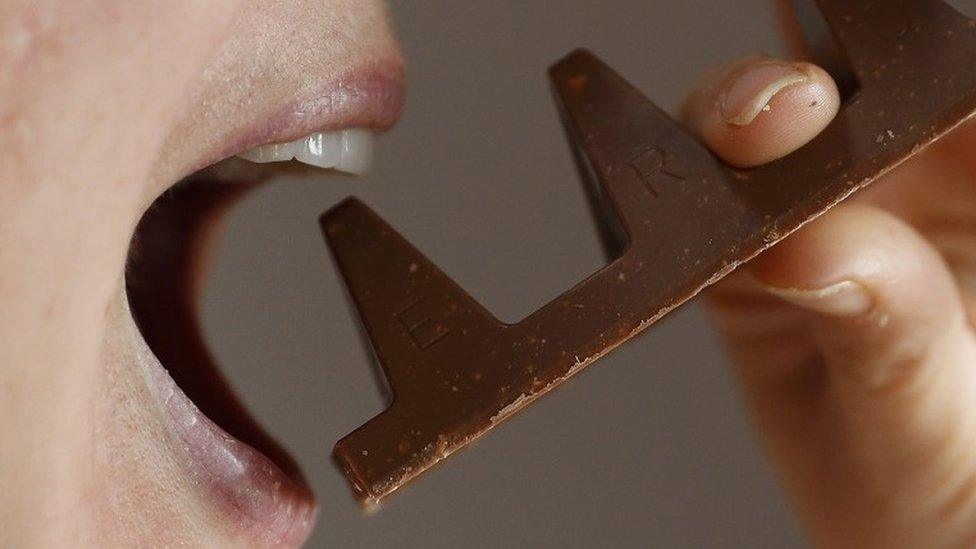
Toblerone fans have criticised the new bars saying they want the traditional "chunky" design
Fans of Toblerone bars complained bitterly last week when they realised the manufacturer had spaced out the triangular chunks in some of its confectionery.
The product's makers, Mondelez International, said it had reduced the weight of the 400g bar to 360g and the 170g bars to 150g, but it had kept the packaging the same.
Mondelez said the move was down to a rise in the cost of ingredients and production. However, it linked it to the rise of the Swiss franc in 2015 rather than Brexit-linked exchange rate concerns.
The company said it was a choice between changing the look of the bars or raising the price.
Walkers and Birds Eye have both said they are set to raise the prices of some items following the drop in the UK exchange rate since June's EU referendum.
- Published18 November 2016
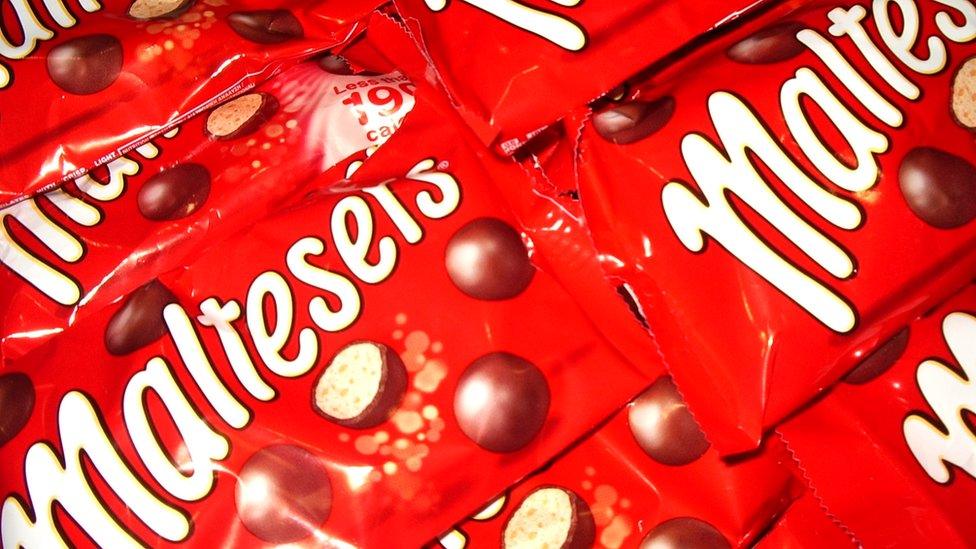
- Published8 November 2016
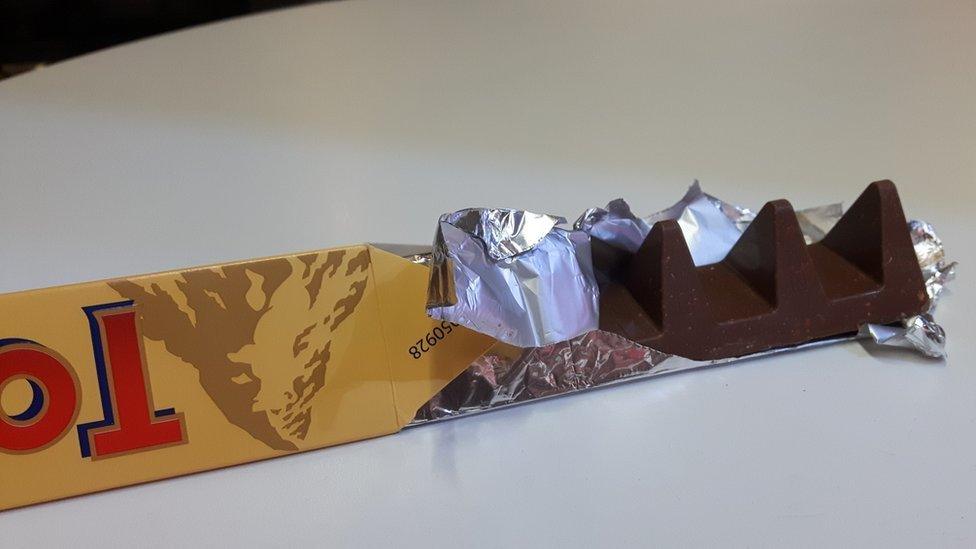
- Published13 October 2016
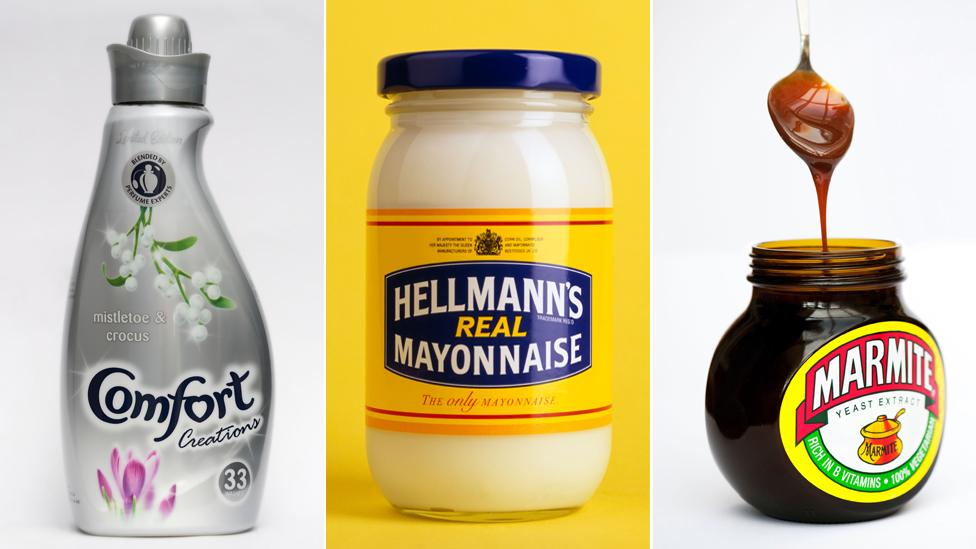
- Published5 October 2016
